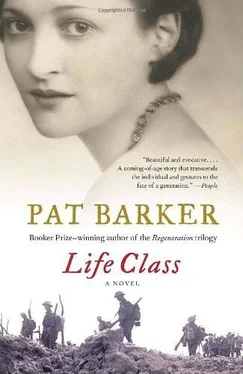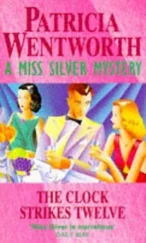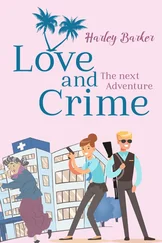Pat Barker - Life Class
Здесь есть возможность читать онлайн «Pat Barker - Life Class» весь текст электронной книги совершенно бесплатно (целиком полную версию без сокращений). В некоторых случаях можно слушать аудио, скачать через торрент в формате fb2 и присутствует краткое содержание. Год выпуска: 2009, Издательство: Anchor, Жанр: Историческая проза, на английском языке. Описание произведения, (предисловие) а так же отзывы посетителей доступны на портале библиотеки ЛибКат.
- Название:Life Class
- Автор:
- Издательство:Anchor
- Жанр:
- Год:2009
- ISBN:нет данных
- Рейтинг книги:4 / 5. Голосов: 1
-
Избранное:Добавить в избранное
- Отзывы:
-
Ваша оценка:
- 80
- 1
- 2
- 3
- 4
- 5
Life Class: краткое содержание, описание и аннотация
Предлагаем к чтению аннотацию, описание, краткое содержание или предисловие (зависит от того, что написал сам автор книги «Life Class»). Если вы не нашли необходимую информацию о книге — напишите в комментариях, мы постараемся отыскать её.
Life Class — читать онлайн бесплатно полную книгу (весь текст) целиком
Ниже представлен текст книги, разбитый по страницам. Система сохранения места последней прочитанной страницы, позволяет с удобством читать онлайн бесплатно книгу «Life Class», без необходимости каждый раз заново искать на чём Вы остановились. Поставьте закладку, и сможете в любой момент перейти на страницу, на которой закончили чтение.
Интервал:
Закладка:
Mother’s gone back to her bandaging again. Toby’s in the army. Dad’s busy with his head-injuries unit. Tom’s in the War Office. Rachel says the baby’s her war work. Ruthie’s off to France. So you see how things are, Paul. Everybody doing important war work, except me. I alone preserve an iron frivolity.
Paul to Elinor
You’re not serious about leaving the Slade, are you? Do take time to think about it. Painting teapots may keep the wolf from the door but it won’t do anything to establish you as an artist. On the other hand you know the situation better than me, and I suppose we all have to stop being students some time. Anyway I’ll buy your teapots, honey — if you do leave. And your cushions.
The rain that rains on you also rains on us, and it makes things devilish difficult. All the paths between the huts are lined with duckboards now and even so we sink. The mud bubbles up through the slats. I’ve taken to getting right away on my days off, can’t stand the place, can’t work (draw, I mean, the other sort of work I do in a trance). I managed to get an ambulance driver to take me up to the front line, promising if he was full on the way back I’d walk. He’s called Guy and he’s a Canadian, very dark skin, furrowed cheeks, he looks too old to be here, but here he is. And taciturn in the extreme, which suited me. I didn’t want to talk, I wanted to look.
The first part of the road I was familiar with, because I’ve walked along it before, but after that there’s open country. Very strange, mad feeling as you go further out, away from the town, because there are fields and farmhouses and it all looks normal until you see that the farmhouse has a hole in the roof and the corn’s still standing in the fields, beaten flat of course in lots of places, but in others, where it’s more sheltered, still standing. I remembered a cornfield I walked through last summer, how restless it was. How it whispered all the time though there was hardly any breeze and I thought about the farmer who planted this field last spring, with no idea he wouldn’t be there to harvest it. And then after that a stretch of normal countryside: tall, spindly trees, willows — some with yellow leaves still clinging to their branches, bending to meet their reflections in the canals. Everything end-of-year and stagnant, but beautiful too in its own way.
The road was clogged with limbers and motor vehicles and men marching towards the front. They look like a machine: all the boots moving as one, shoulders bristling with rifles, arms swinging, everything pointing forwards. And on the other side of the road, men stumbling back, trying to keep time, half-dead from exhaustion and with this incredible stench hanging over them. You get whiffs of it when you cut the clothes off wounded men, but out there, in the mass, it’s as solid as a wall. And they all look so grey, faces twitching, young men who’ve been turned into old men. It’s a great contrast, stark and terrible, because they’re the same men, really. It’s an irrigation system, full buckets going one way, empty buckets the other. Only it’s not water the buckets carry.
Further on the road dipped down then levelled out again and that was where the sense of strangeness began. What I didn’t know — though it’s obvious enough when you think about it — is that companies in a column of marching men take synchronized breaks, so, at a given moment, all the men fall out and sit by the roadside, blending into the muddy ground. So for a time the road looks empty. I’m not explaining this very well, but I saw it happen and it made the hairs on the back of my neck stand up. I don’t quite know why. It’s the feeling of an empty, desolate landscape that isn’t empty at all, but teeming with men.
We were crawling along most of the time, edging past columns of men in wet, gleaming capes and helmets, like mechanical mushrooms. Now and then somebody looks up, and you get the sense of an individual human mind among the bundles of soaked misery. All this is in semi-darkness of course. Close to the front people move only after dark, with dawn and dusk the most dangerous times. That’s when the heaviest bombardments are. Nothing dramatic happened to us though. It rained all the way there and all the way back — I didn’t have to walk.
This will sound heartless, and perhaps it is, but close to the front line where the land on either side of the road is ruined — pockmarked, blighted, craters filled with foul water, splintered trees, hedges and fields gouged out — I realized I felt the horror of that landscape almost more than I feel for the dying. It’s a dreadful thing to say, I know — a flaw in me — but the human body decays and dies in some more or less disgusting way whether there’s a war or not, but the land we hold in trust.
Sorry! This has got awfully deep and I didn’t mean it to, but it leads up to some good news at least. When I got back I found Lewis in the hut almost bouncing on the beds with excitement. The nurses — the fully qualified ones who, we were beginning to think, were as mythical as the nine muses — are on their way at last, so it can’t be long now before we get our transfer. I want to be up there. I don’t want to be stuck here in comparative safety doing a job that a woman could do equally well, and in the case of a qualified nurse, BETTER!
Elinor to Paul
I’m pleased for you, Paul, I really am — since it’s what you seem to want. I wonder whether you know how hard it is to answer your letters? A week has gone by since I received your last, though I meant to sit down and reply at once. I know you say you want to hear about all my doings but I can’t help feeling that my doings are terribly trivial compared with yours and that this may even may be part of their attraction for you. It’s like looking through the window of a doll’s house, isn’t it?
Anyway doll’s house or not, here goes. I’ve been to tea with Lady Ottoline Morrell! I never thought I’d live to see the day. I met her at the Camden Street Gallery and she looked at me very intently for a long time and then she said in that vague way of hers, wafting a jewelled hand about above her head, You must come to tea some time. Do come to tea.
I thought that was fairly meaningless really — no time, no date — and immediately forgot all about it, but yesterday morning I came downstairs and there was the invitation on the mat and so this afternoon I set off, wearing one red stocking and one blue as a reminder to myself not to be nervous though of course I was. Close to, in broad daylight, she really is quite extraordinary. We sat in a red room overlooking a walled garden and the rainy afternoon light fell full on her face which was heavily rouged with purple shadow on the lids and in a way she looks quite beautiful and in another almost grotesque. She’s obviously decided that being ordinary is not an option for her and she’s right. So although she’s very tall — six foot if she’s an inch — she wears thick cork soles that add on another two inches. Her dress was brightly coloured green silk with an intricate web of gold embroidery — very beautiful, but for afternoon tea? My pathetic little gesture with odd stockings was nowhere, I can tell you. She’s not easy to talk to, though she is interested in everything you say. You feel she’s listening, not just waiting for the chance to make some clever remark herself like most of that Bloomsbury crowd. Only — now I’m going to carp and I shouldn’t — there isn’t much humour, and it’s all very intense. She seems to be drawing your soul out of your body. It’s a kind of cannibalism. I felt I had nothing to offer her. Not enough meat on my bones. We talked about the war. Oh my God, yes, the war, I’m so heartily sick of it but it seems to be unavoidable even with people like her who hate it as much as I do. She said she was totally opposed — a point in her favour — but had decided that it was pointless trying to stop it. I was trying not to laugh. The vanity of these people! — thinking they can influence the fate of nations when it takes them all their time to organize their own lives. But then she said she’d switched her energies to trying to help the wives and families of German internees who’ve been left with no income, dependent on charity handouts. Even when the wife is English she can’t get even the most menial work, not even doorstep scrubbing, which is the lowest-paid work there is — or so Lady O says. I sort of half promised I would go and hand out parcels with her but all the time I was thinking about Catherine and how I ought to have done more for her. She’s a friend for goodness’ sake and that matters more than charity, or ought to, but when I got her letter about her father being interned I was so excited about going to see you I didn’t do anything. I should have gone to see her then. Made time. It was wrong of me not to. Lady O meanwhile was trying to move the conversation on to a more personal plane. She wants something from you — not in any crude material way — something emotional. Or intellectual perhaps, but she must have guessed there was no point expecting anything like that from me! I told her about Catherine and how worried I was about Toby and it was all true, every word of it was true, so why did it sound so false? But these were just bits of gristle, not real juicy flesh. So then I bethought me of my trip to see you, and I told her about that — she’s the first person I’ve told — which is wrong, because what is Lady O to me, or I to her? I haven’t told Rachel. I haven’t told Mother. But I did tell her and she was ecstatic. It became quite embarrassing and I’ve no doubt she’ll repeat the story with embellishments all over London and I shall acquire a reputation for — I don’t know what — recklessness, romantic passion — something.
Читать дальшеИнтервал:
Закладка:
Похожие книги на «Life Class»
Представляем Вашему вниманию похожие книги на «Life Class» списком для выбора. Мы отобрали схожую по названию и смыслу литературу в надежде предоставить читателям больше вариантов отыскать новые, интересные, ещё непрочитанные произведения.
Обсуждение, отзывы о книге «Life Class» и просто собственные мнения читателей. Оставьте ваши комментарии, напишите, что Вы думаете о произведении, его смысле или главных героях. Укажите что конкретно понравилось, а что нет, и почему Вы так считаете.












